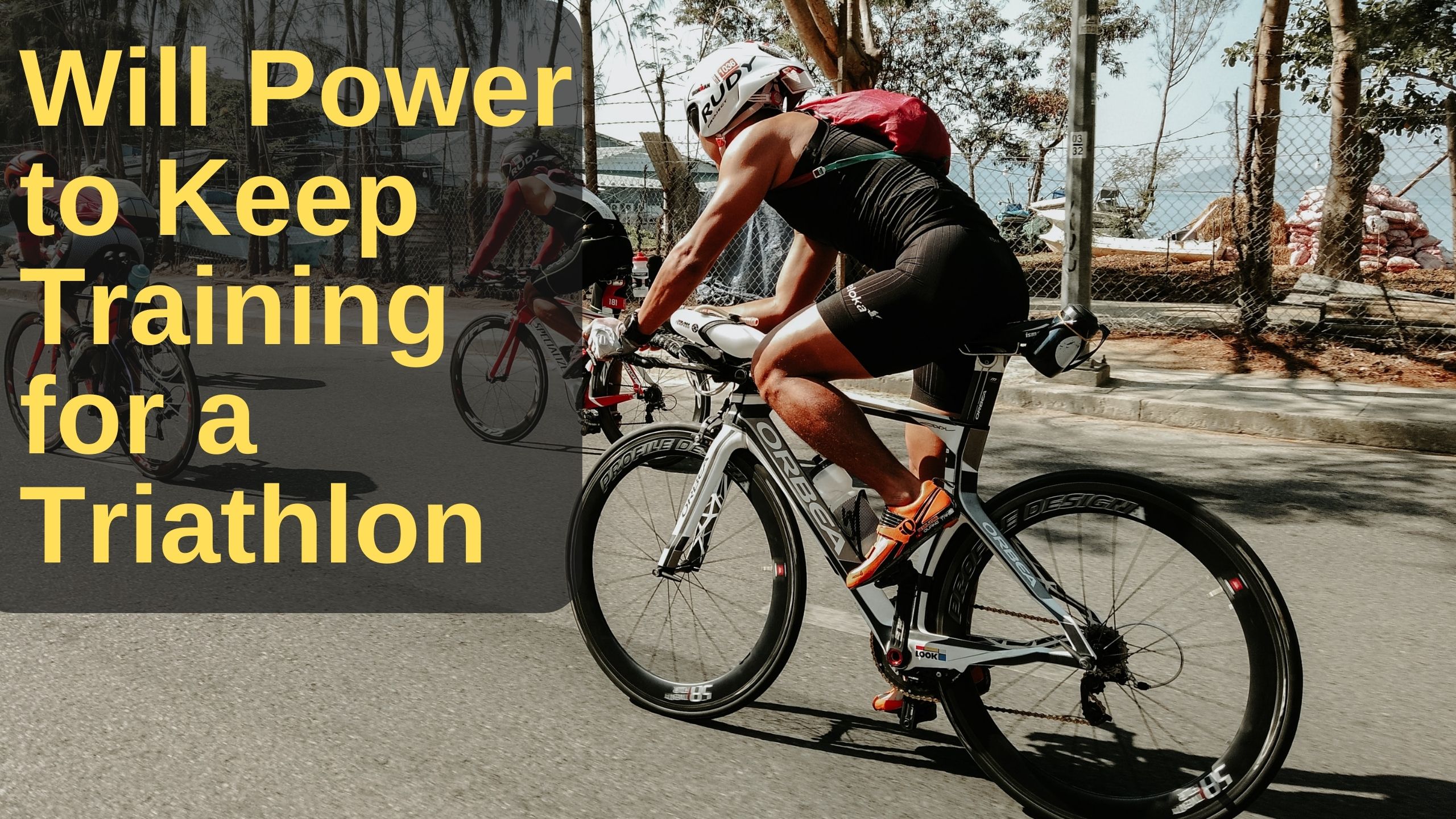It’s been a rough day at work, the kids have multiple appointments, and you’re tired from yesterday’s workout.
Does this sound like a familiar story?
I don’t have kids, but I do know what it’s like to be exhausted mentally, emotionally, and or physically to the point that you have about .01% willpower.
So, how do you keep training for a triathlon when your willpower is just not there anymore?
The simple answer is that you don’t let willpower be a part of the equation. You take all of the decision-making out of how you feel about training.
Here is the solution. Make your training a habit. It becomes like brushing your teeth. No matter what, when you wake up in the morning you do it. If an emergency comes up of course you have to adjust, but most training days should be as easy as tying your shoes.
Deep Work
“Deep Work” is a book written by Cal Newport. He is a computer science professor at Georgetown University who has done copious amounts of research on human behavior and focus.
I finished “Deep Work” about three years ago. It is packed full of advice on how to become more focused and proficient at anything that you are pursuing.
One of the major takeaways from the book is the fact that even the most focused humans to ever be tested can only maintain focus on new information for four hours at a time within a day. And the average person will maintain focus on new information for about 30 minutes in a day.
I’m over-generalizing the entire message of the book, but this equates to how much willpower we have quantitatively in our minds/nervous systems per day.
“Deep Work” provides various methods that you can try to implement as a daily habit so that you accomplish your goals with greater ease. The stronger and more ingrained the habit is, the more ability there is to maintain a consistent output of creativity or nuanced work. This does not apply to highly repetitive work or work that does not require attention to variables that might arise from the work.
How does this apply to training for a triathlon?
If you use the methods outlined in “Deep Work” to form a habit, then you will be more likely to fulfill your goals more easily. Triathlon training can be repetitive and boring at times. Sometimes, there’s very little nuance or creativity needed to finish a workout. There are also times when your willpower or the desire to train will not be available.
When you have established a habit, willpower is no longer a deciding factor. You just do it, because your whole body and mind are ready to do it.
How “Deep Work” Helped Me Keep Training Even When I Didn’t Want To
Years ago I was training for my first Ironman 70.3 in Taiwan. The beginning of my training a year ahead of time was not easy. I was not used to training six days a week.
I recently finished Cal Newport‘s book and I remember that he recommended any new habit that requires a lot of attention to be done before you go to work.
I tried waking up early and training in the mornings before I left for school. After about two weeks, I knew that this was not going to work for me.
I was too tired by the end of the day to even teach my later classes. And I needed to write at the end of the day if I wasn’t gonna do my writing in the morning.
Writing at the end of the day is very difficult for me. I don’t feel as fresh and my mind is exhausted from teaching.
So, I switched my training time to either my lunch break or in the evening after work. I hit the jackpot. Athletic training takes a lot less mental energy. I could get used to training later in the day because I don’t have to tax my mind so much.
The book recommended finding a time that works with your lifestyle. It explains that nothing is universal. But setting a dedicated time for specific activities within a particular environment helps to create a habit that requires less willpower.
And this is totally what happened to me. Even when it was raining for weeks at a time, I still went out and trained.
I made sure that my emotions didn’t get involved with the training that I planned on getting done. After I finished the training, then I would reflect on how I felt.
After I finished training, I would realize how great I felt. The more that I realized how great I felt after finishing the training, the more I looked forward to finishing my training, no matter how I felt before doing the training.
Atomic Habits
“Atomic Habits” is a book that I am still reading. I am about 75% finished with it according to my Kindle. But, the most important points that I have gotten out of it, are that habits created will have exponential returns. If the habit is good, exponential good returns. If the habit is bad, exponential bad returns.
Reward Yourself
This book also shows how by training for any sport, the easiest way to get a process in place, is to form a habit. The more that we reward our good behaviors and habits, the more likely they are to stick.
When doing swim, bike or run training, it helps to reward ourselves with a positive appreciation for what we accomplished. Or we could think about how good we feel right after the event. One might even get the support of friends or family to help them stay motivated.
There are many different ways that you can help form a habit, but this is probably one of the best ways, to reward/treat yourself.
Make Not Training More Difficult
Another gem that he discusses in the book, is making bad habits difficult to do. Make them so gross or out of the way to do, that each time you do it you are rewarded negatively. If you are trying to break the habit of eating ice cream at night, as like did for 5 years, you have to make it unattractive.
The first step to not eating ice cream at night is to not buy it at the grocery store. If you don’t have it in the house, you have to make a special trip to get more ice cream. You may have to get dressed, drive 15 minutes, and see people that see you are only buying ice cream. The effort put into buying ice cream starts to erode the outlook of the pleasure you get from eating ice cream at night.
This also applies to the willpower you have of keeping your schedule of training for triathlons. The easiest way to get better is to commit to a process of accomplishing your goals. Having negative rewards for not working out when you are not sick or don’t have an emergency, will help training seem and feel more beneficial to you than not working out. Again, you can think about that feeling you get from working out. How accomplished do you feel, or how much more at ease do you feel after you have worked out.
The negative benefit to not working out could be how bad you feel that you didn’t train. Or you could go use this website StickK. Here you can set goals and if you don’t make your goals, you have to donate money to an organization that you don’t like. One example could be that you donate money to the KKK if you don’t meet your goal. The horrible reward for not doing what you said you would do is so strong and visceral, that you stick to what you want to accomplish much more easily.
Make Your Training a Lifestyle
“Love the training more than the race.” That is how I feel about training as a triathlete. There are more wins in everyday consistency. The event of a race is the culmination of those moments when we changed our everyday lives so that we could train for a triathlon.
If you can make training as regular as brushing your teeth, willpower will not be what stops you from training. Make it fun. Reward yourself for being a triathlete and make not training a difficulty.
I hope that this article helps. The two books I mentioned above will help you understand how to apply this philosophy to your life.
Have an amazing day!

